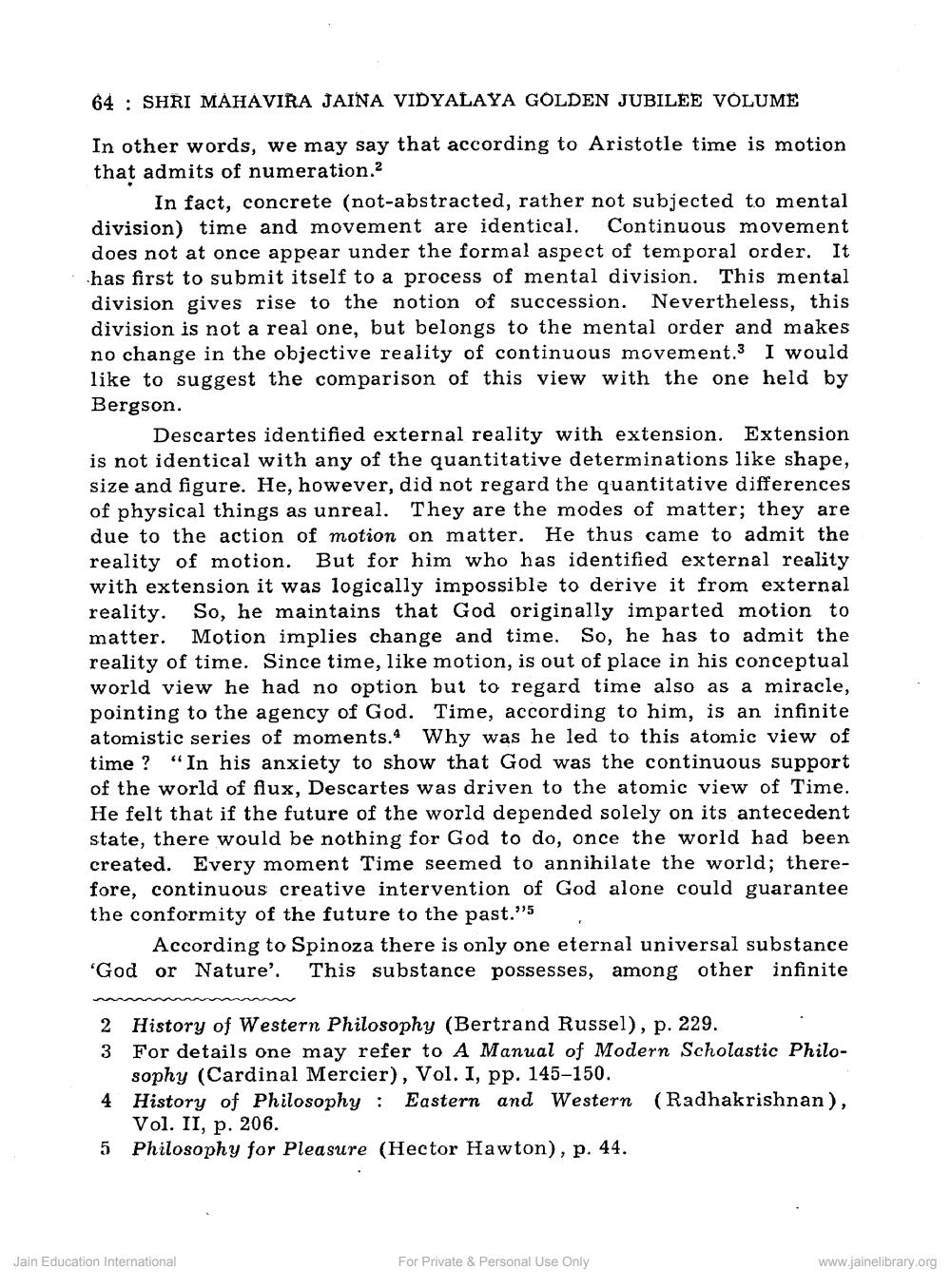Book Title: Nature of Time Author(s): Nagin J Shah Publisher: Z_Mahavir_Jain_Vidyalay_Suvarna_Mahotsav_Granth_Part_1_012002.pdf and Mahavir_Jain_Vidyalay_Suvarna_ View full book textPage 2
________________ 64 : SHRI MAHAVIRA JAINA VIDYALAYA GOLDEN JUBILEE VOLUME In other words, we may say that according to Aristotle time is motion that admits of numeration.2 In fact, concrete (not-abstracted, rather not subjected to mental division) time and movement are identical. Continuous movement does not at once appear under the formal aspect of temporal order. It has first to submit itself to a process of mental division. This mental division gives rise to the notion of succession. Nevertheless, this division is not a real one, but belongs to the mental order and makes no change in the objective reality of continuous movement. I would like to suggest the comparison of this view with the one held by Bergson. Descartes identified external reality with extension. Extension is not identical with any of the quantitative determinations like shape, size and figure. He, however, did not regard the quantitative differences of physical things as unreal. They are the modes of matter; they are due to the action of motion on matter. He thus came to admit the reality of motion. But for him who has identified external reality with extension it was logically impossible to derive it from external reality. So, he maintains that God originally imparted motion to matter. Motion implies change and time. So, he has to admit the reality of time. Since time, like motion, is out of place in his conceptual world view he had no option but to regard time also as a miracle, pointing to the agency of God. Time, according to him, is an infinite atomistic series of moments. Why was he led to this atomic view of time? "In his anxiety to show that God was the continuous support of the world of fiux, Descartes was driven to the atomic view of Time. He felt that if the future of the world depended solely on its antecedent state, there would be nothing for God to do, once the world had been created. Every moment Time seemed to annihilate the world; therefore, continuous creative intervention of God alone could guarantee the conformity of the future to the past." According to Spinoza there is only one eternal universal substance "God or Nature'. This substance possesses, among other infinite 2 History of Western Philosophy (Bertrand Russel), p. 229. 3 For details one may refer to A Manual of Modern Scholastic Philo sophy (Cardinal Mercier), Vol. I, pp. 145-150. 4 History of Philosophy : Eastern and Western (Radhakrishnan), Vol. II, p. 206. 5 Philosophy for Pleasure (Hector Hawton), p. 44. Jain Education International For Private & Personal Use Only www.jainelibrary.orgPage Navigation
1 2 3 4 5 6 7 8 9 10 11 12 13 14 15 16 17 18 19 20 21 22 ... 25
